Science Source
Spatiotemporal Evolution of Heat Wave Severity and Coverage Across the United States
Study key findings & significance
- A new spatial metric tracks daily heat wave evolution finding a significant upward trend in heat wave severity and coverage 1981–2018
- The observed upward trend is not captured by examining individual heat wave characteristics such as frequency, magnitude, or duration
- Findings suggest a substantial increase in the heat wave burden across the United States during the last four decades
Банки часто пропонують кредитні картки з різними бону
Related Content
Headline
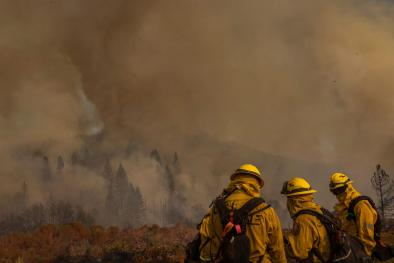
Feb 7, 2024 | Climate Nexus Hot News
Heat And Smoke Are Worse Together Than Apart
Science Source
| Science Advances
Unprecedented climate events: Historical changes, aspirational targets, and national commitments
Noah S. Diffenbaugh, Deepti Singh, and Justin S. Mankin
Science Source
| American Meteorological Society
Sixfold Increase in Historical Northern Hemisphere Concurrent Large Heatwaves Driven by Warming and Changing Atmospheric Circulations
Cassandra D. W. Rogers , Kai Kornhuber , Sarah E. Perkins-Kirkpatrick et al
Science Source
| American Meteorological Society
Diverse Characteristics of U.S. Summer Heat Waves
Bradfield Lyon and Anthony G. Barnston
Science Source
The Effects of Historical Housing Policies on Resident Exposure to Intra-Urban Heat: A Study of 108 US Urban Areas
Study key findings & significance
- "[I]n nearly all cases, those neighborhoods located in formerly redlined areas — that remain predominantly lower income and communities of color — are at present hotter than their non-redlined counterparts.”
- “‘D’-rated areas are now on average 2.6° C warmer than ‘A’-rated areas. Areas assigned a ‘hazardous’ HOLC [Home Owners' Loan Corporation] security rating in U.S.
Related Content
Headline

Sep 27, 2023 | Forbes
Rampant Heatwaves Are A Growing Threat To Caribbean Food Security
Headline

Sep 26, 2023 | NBC News
Underground climate change: How heat is trapped under the surface, threatening buildings
Headline

Sep 26, 2023 | AP
After summer’s extreme weather, more Americans see climate change as a culprit, AP-NORC poll shows
Headline
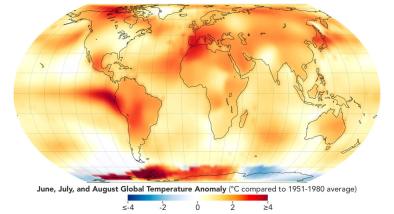
Sep 20, 2023 | Climate Nexus Hot News
NASA + NOAA Confirm This Was The Hottest Summer On Record
Science Source
Social inequalities in climate change-attributed impacts of Hurricane Harvey
Study key findings & significance
- climate change greatly increased Harvey’s flooding but also that the climate-boosted flooding hit low-income Hispanic communities the hardest.
- The finding shows that researchers can now do more than quantify how climate change led to additional homes being flooded. They can also assess how weather extremes, propelled by climate change, harm some groups more than others.
Author quotes
“The first big finding is that climate change can serve as the tipping point between flooding and not flooding.
Related Content
Headline
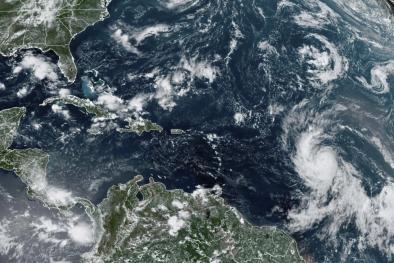
Sep 8, 2023 | Climate Nexus Hot News
Hurricane Lee Strengthens To Cat 5 Monster In 18 Hours
Headline
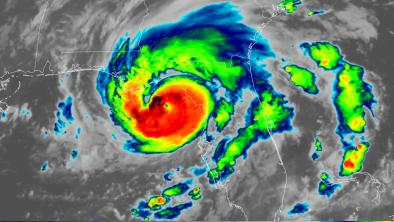
Aug 30, 2023 | Climate Nexus Hot News
Idalia Hits Florida With Dangerous Storm Surge
Headline
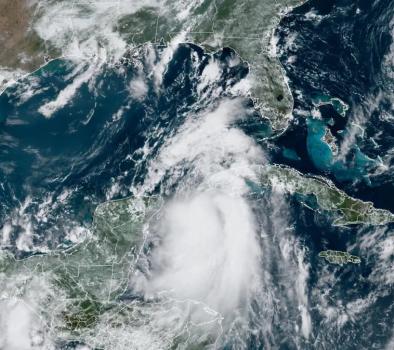
Aug 29, 2023 | Climate Nexus Hot News
Idalia Bears Down On Florida Gulf Coast
Headline

Aug 17, 2023 | Climate Nexus Hot News
Hurricanes Far Deadlier Than Official Counts
Science Source
Attributable human-induced changes in the magnitude of flooding in the Houston, Texas region during Hurricane Harvey
Study key findings & significance
- The extreme rainfall brought by Hurricane Harvey increased the flooded area in the Greater Houston area by 14%
Author quotes
“Our best estimate is that climate change increased the cost of Hurricane Harvey by about 14% or US$13Bn”. Sampson & Wehner
Related Content
Headline
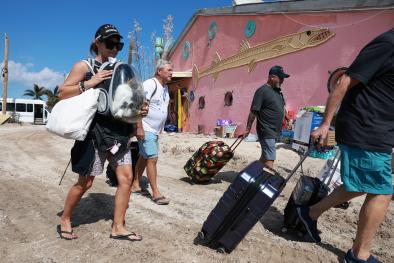
Feb 8, 2023 | E&E News
Census: Disasters displaced more than 3M Americans in 2022
Headline
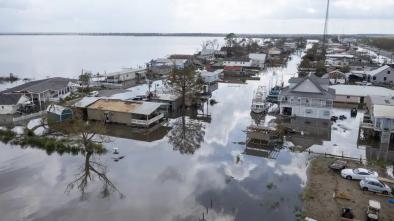
Jan 30, 2023 | AP
Filipino Workers Allege Offshore Oil Co. Abandoned Them To Hurricane Ida
Science Source
| Environmental Research Letters
Economic losses from hurricanes cannot be nationally offset under unabated warming
Robin Middelanis, Sven N Willner, Christian Otto et al
Headline

Nov 1, 2022 | Climate Nexus Hot News
Lisa Expected To Hit Central America At Hurricane Strength
Science Source
The Fifth U.S. National Climate Assessment
Study key findings & significance
- The Fifth National Climate Assessment (NCA) is a report developed by the U.S.
Related Content
Headline

Feb 15, 2024 | Climate Nexus Hot News
Amazon Could Reach Tipping Point By Midcentury
Headline

Jan 16, 2024 | Climate Nexus Hot News
2023 Smashes Hottest Year Record
Headline
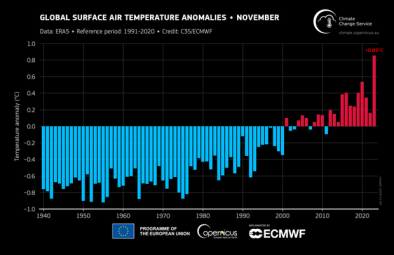
Dec 7, 2023 | Climate Nexus Hot News
It’s Official - 2023 Is World's The Hottest Year On Record
Headline

Dec 7, 2023 | Climate Nexus Hot News
Earth Veering Closer To Dangerous Tipping Points


